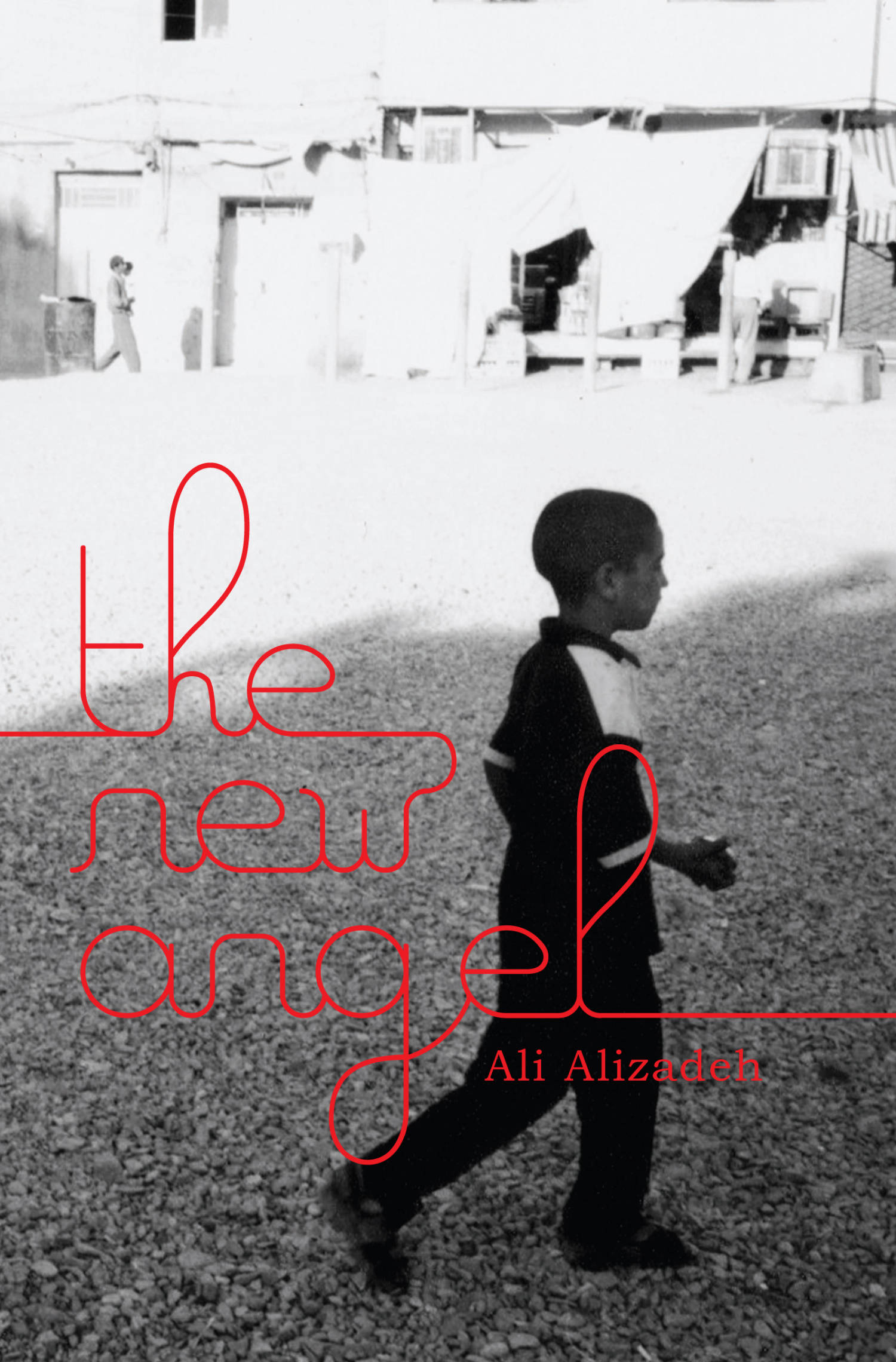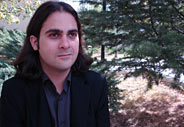Pick of the Week: The debut novel from Iranian-born Australian poet Ali Alizadeh is about love in the time of terror. Bahram is a teenage boy from an educated and secular Iranian family. When the Islamic revolution comes, it purges the culture the family has come to embrace. Bahram’s mother must wear a headscarf. Activities such as listening to Western music or reading Western books are fraught with peril. Then Bahram’s uncle, formerly an academic disappears under suspicious circumstances. Despite the fact that Bahram lives in constant fear, the oppressive regime cannot control his heart – and when he meets Fereshteh (Persian for Angel), love blooms. But it is only a matter of time before the lovers’ secret romance is discovered, with disastrous consequences. Alizadeh has written an absorbing romantic tragedy notable for its precise and fiercely felt prose.
Cameron Woodhead, The Age Saturday 26 July 2008.
Alizadeh has written not only a compelling romantic tragedy but also a powerful, edgy story that depicts Australia’s sometimes shameful treatment of immigrants.
Carlene Ellwood Sunday Tasmanian Hobart Town, Tasmania. 10 August 2008
Alizedeh beautifully and terrifyingly portrays a society in disastrous transition – one can only hope it is just a tragic interlude. The New Angel is a wonderful novel by a highly talented Iranian-born Australian writer.
Mark Rubbo Readings Newsletter June 2008.
It is a strange and yet auspicious characteristic of human nature, that in such horrific and uncontrollable circumstances such as those in which the characters of The New Angel find themselves, something as poetic, romantic and all-consuming as young love can not only begin, but flourish. The characters of Bahram and Fereshteh at first captivate, then enthral, and in the end, in different ways, become victims of the time in which they lived. It is to the author’s credit that a work that seems so personal, so emotional, and so raw, is able to provide such a powerful lesson about the best and worst of humanity.
Michael Freedman Matilda Literary Weblog: www.middlemiss.org
Bahram’s is the voice of the newly-arrived immigrant, misunderstood and always alien, at home neither in the country he has come from nor the one he now inhabits. Such people are becoming increasingly common in our globalised society, and their outsider voices need to be heard and heeded if the notion of a ‘global village’ is to ever become a reality.
Transit Lounge, though a small publisher, has done a lovely job with this book, which is aesthetically pleasing and well-edited. Some of Alizadeh’s earlier poetry publications let him down in this respect, but The New Angel showcases his talent for lyrical prose and is hopefully just the beginning of his prose output.
Liz Hall-Downs, www.compulsivereader.com
I’ve just finished reading a new book called The New Angel by Ali Alizadeh which has floored me. There are scenes in this novel that imprint themselves onto the brain, where they tend to reside for days.
The story concerns Bahram, currently living in Australia, who after receiving a phone call from someone in his past, begins to recall his time growing up in Iran during the Islamic Revolution and the Iran-Iraq war, and of his burgeoning love for Fereshteh (Persian for ‘angel’). Much of the novel mirrors Ali Alizadeh’s own story and it is the blurring of fact and fiction that makes this book so potent.
Alizadeh’s anger at fundamentalism is so heartfelt that it is impossible to engage with the story from a detached distance. The vitriolic tone that seethes through the novel leaves the reader in no doubt the suffocating atmosphere such regimes pose on its citizens. This is not the book to read if looking for cold, objective reportage. This is a man trying to show that no matter where you run the past is always there waiting for its moment before it taps you on the shoulder and despite oppressive circumstances poetry(and all that word entails) and even possibly redemption is attainable.
Greg Waldron, Posted by Abbey’s Bookshop Thursday May 29 2008, www.abbeybookshop.blogspot.com



